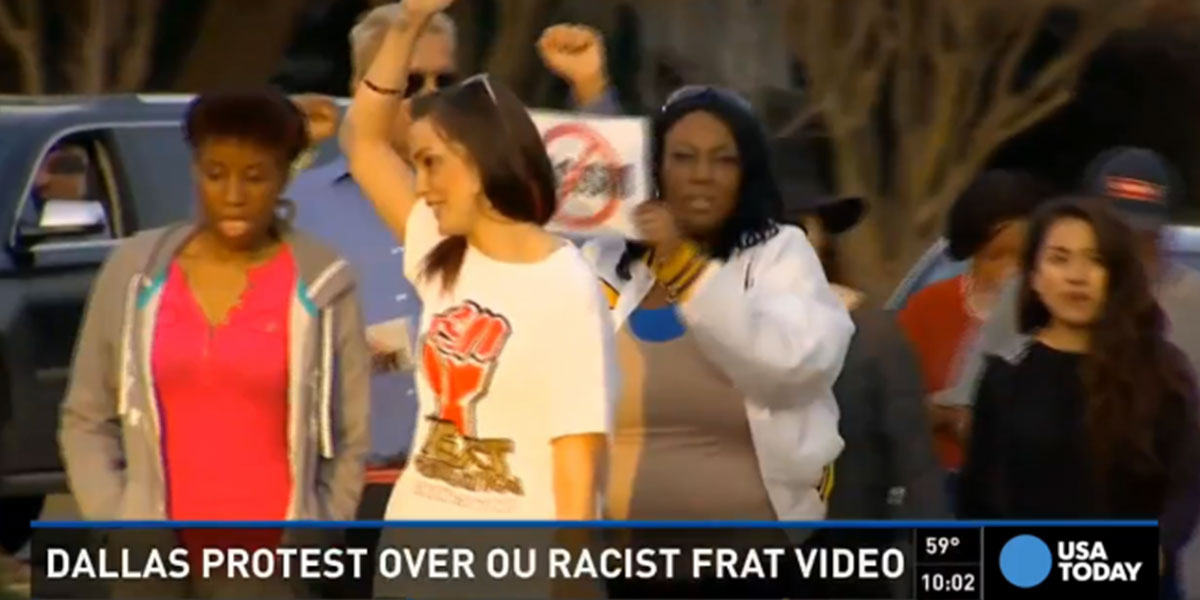In our mission to Erase Hate, the Matthew Shepard Foundation is often confronted with the simple, yet loaded question of “How?” When we hear and witness words and actions fueled by intolerance and hate, how do we respond? What is the appropriate way to react to someone who, knowingly or otherwise, is hurting and demeaning a group of people?
Often these questions are asked in the context of our personal lives; being able to have conversations with those close to us and with whom we interact on a regular basis without causing strain or an uncomfortable environment should a situation turn contentious. Many of us operate in a gray area—we make excuses for our friends and our family, hoping to justify our inaction or silence knowing there is a learning curve, that someone we care about is not inherently bad or wrong for expressing a distasteful, prejudice belief.
It can be difficult to explain the “how” in a way that instills absolute confidence. But yesterday, after a video of a racist chant being conducted by a fraternity at the University of Oklahoma, the college’s president, David Boren, gifted us the perfect example of “how.” Here is his official statement:
“To those who have misused their free speech in such a reprehensible way, I have a message for you. You are disgraceful. You have violated all that we stand for. You should not have the privilege of calling yourselves “Sooners.” Real Sooners are not racist. Real Sooners are not bigots. Real Sooners believe in equal opportunity. Real Sooners treat all people with respect. Real Sooners love each other and take care of each other like family members.
Effective immediately, all ties and affiliations between this University and the local SAE chapter are hereby severed. I direct that the house be closed and that members will remove their personal belongings from the house by midnight tomorrow. Those needing to make special arrangements for positions shall contact the Dean of Students.
All of us will redouble our efforts to create the strongest sense of family and community. We vow that we will be an example to the entire country of how to deal with this issue. There must be zero tolerance for racism everywhere in our nation.”
Boren’s words and detectable frustration with the student’s behavior is what’s inspiring. As the leader of an academic institution that houses faculty, staff and students from all walks of life, it is Boren’s obligation to speak firmly without hesitation. His actions to expel the offending students and disassociate the university with the fraternity were swift. He directs the problems of racism and bigotry head on, labeling the situation for exactly what it was: reprehensible.
Along with bluntly addressing the situation as wrong and deplorable, he ends his statement with an inclusive call to action. “All of us” will work harder, and “we vow” to make sure our actions from this day forth will create an accepting and respectful community. Boren is not defending the students or the school, he is challenging every single member of that community to rise above this. The offenders lived, learned and socialized in a community where their hate was allowed to exist. Boren, by his words, is setting a standard for every person on that campus to reevaluate their relationship with hate in their community.
There is no fear that these words will make others uncomfortable, only a stern declaration that racism is not tolerated, that hate is not welcome. As a leader, Boren made it his responsibility to say and do what was right and deserved, and then acknowledge that the work does not stop with expulsion.
In our personal lives and relationships, it’s easier to pass the buck to those with more power, a louder voice. But it’s our silence—in our homes, schools and places of work—that we should be most uncomfortable with.
At the Foundation, we strive to break the silence surrounding hate in our communities. It’s why we are fervent supporters of The Laramie Project and provide a voice for LGBTQ+ youth on Matthew’s Place. It’s why we advocate so strongly for cities to accurately report hate crimes and better understand the violence and danger people face on a daily basis, and it’s why Judy and Dennis Shepard continue to share Matt’s story.

